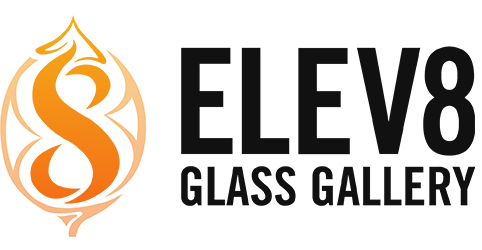Posted by Steve K on January 31, 2023
- Awareness
- This means always pay attention to what is happening in your surroundings. There is a lot of dangerous aspects to glassblowing and we need to work as a team to keep the shop a safe place.
- Propane
- We are dealing with flammable gases and this is not to be underestimated. Turn off all valves when not using the torch. When changing tanks, the regulator is reverse threaded. Always remember to chain the new tank to your table to prevent it from being tipped over. This could cause the regulator to break off and that is not good at all. Once a month propane lines need to be checked for leaks using mild soapy water or windex. Propane has a distinct smell and if it is smelled in the air turn all torches off until the source of the smell is identified.
- Torch Saftey
- The torch is the source of an extremely hot flame and is to be treated with respect. When a torch is not in use all knobs need to be turned into the off positions. When in use the person behind the torch is responsible for their safety and the safety of others.
- Eyes
- At the minimum didymium glasses MUST be worn while blowing glass or watching glass being blown. Most glasses provided by 7th Floor are ace 3 or ace 5, or are boroscopes by philips eye protection. When the red hot glass is glowing it produces UVa and UVb light, which is damaging to the eyes and can cause blindness. The glasses also protect your eyes from any objects that could some how end up in your face. Glass breaks and things pop, so always be careful. Proper protection MUST ALWAYS be worn.
- Hands
- Leather work gloves will be provided and must be worn while performing certain tasks. Glass can be sharp and can break easily. You need to wear gloves when the chance of cutting yourself is present. Gloves also protect your hands from heat during certain tasks. Kevlar sleeves are also provided to block intense heat on your arms when needed. If you need gloves other than what the shop has, you can purchase them and will be compensated for 50% of the cost. Your name needs to be on these.
- Kilns
- Kilns are used for keeping glass hot until a controlled annealing or “cooling” process has been started. The kilns can be at temperatures up to 1200 degrees so gloves and sleeves are recommended for placing items into kilns. Sometimes large sections of a glass piece in progress can be hanging out of a kiln and should be dealt with carefully when putting items into the same kiln. Always be aware that the parts that are in the kiln are very very hot and if accidentally knocked out do not attempt to catch them. Let them fall, you are more important than that piece of glass.
- General Workplace Safety
- Be aware of what pieces in your area are hot. Always keep the hot section elevated off the table and pointed away from you. Sometimes your tools can be extremely hot from the intense heat from the flame and size of glass that you are working with. Keep you area clean and organized.
- Sun Burns
- The glass you are working with, when hot produces UVa and UVb light that can cause a sunburn. Sunscreen can be used to protect the skin and should be used whenever you are working any large glass piece. Blast shields are also provided to reduce the heat and uv radiation on your face from the flame and is recommended to be used for your safety and comfort. It is your responsibility to apply this and ask for it if it is out.
- Sandblasting
- The sandblaster is to be used only by a certified person. There is a class that needs to be taken and if you have not taken the class do not use the sandblaster. Only the certified person should be in the blasting room while the sandblaster is in use. Ventilators must be worn, and proper ventilation must be on while sandblasting. The air compressor is very loud and ear protection MUST be used.
Updated on January 31, 2023
